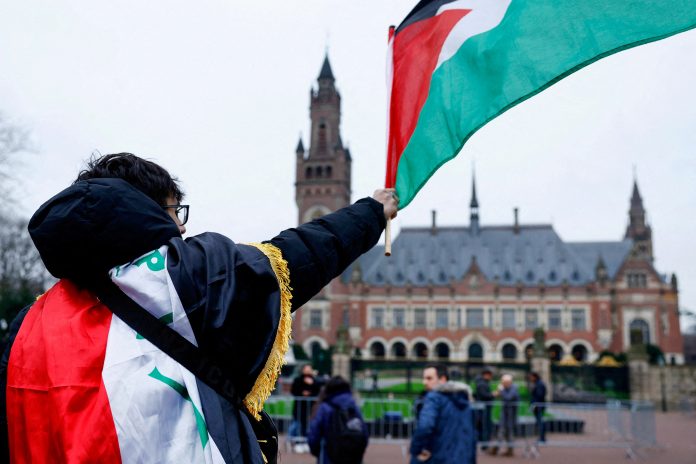South Africa will appeal to the UN International Court of Justice at the Hague on Thursday to order Israel to halt its Rafah offensive, a city in southern Gaza where more than one million displaced Palestinians sought shelter, The Washington Post reports.
At a hearing at the Peace Palace in The Hague, South Africa’s legal team will argue that Israel’s offensive on Rafah poses an “extraordinary risk” to humanitarian supplies and basic services, to the Palestinian medical system and to “the very survival of the Palestinians in Gaza as a group.” Israel will respond on Friday.
Late last year, South Africa filed a case against Israel, accusing the country of “acts of genocide” and asking the court to take “interim measures” to stop the violence. Israel has denied the allegations.
In January, the UN International Court of Justice ordered Israel to take additional measures to prevent the killing of civilians in Gaza, but did not call for a ceasefire. This month, South Africa again asked the court for additional measures, citing the Rafah offensive.
Situation in Gaza is deteriorating
According to the UN, about 600,000 people have fled Rafah since 6 May, including about 150,000 in the past 48 hours. The city’s population has grown from 275,000 to more than 1 million during the war, and aid groups say conditions for civilians in the city have become increasingly dire.
Juliette McIntyre, a law lecturer at the University of South Australia who specialises in international courts and tribunals, said:
The court will be asking whether the situation has changed since its last round of orders. It is possible that the ground offensive in Rafah will also be considered a new development that has not been sufficiently addressed by the earlier orders, even though the earlier orders are reasonably broad.
McIntyre said it was unlikely that the ICJ would dismiss the call for additional measures altogether. She added:
The court remains unable to order Hamas to cease fire, and will be cognizant of this imbalance. But they might order Israel … to do what they can to achieve a cease-fire. Or they may go further and order a cease-fire directly.
The International Court of Justice has been the chief judicial organ of the United Nations since the Second World War.
